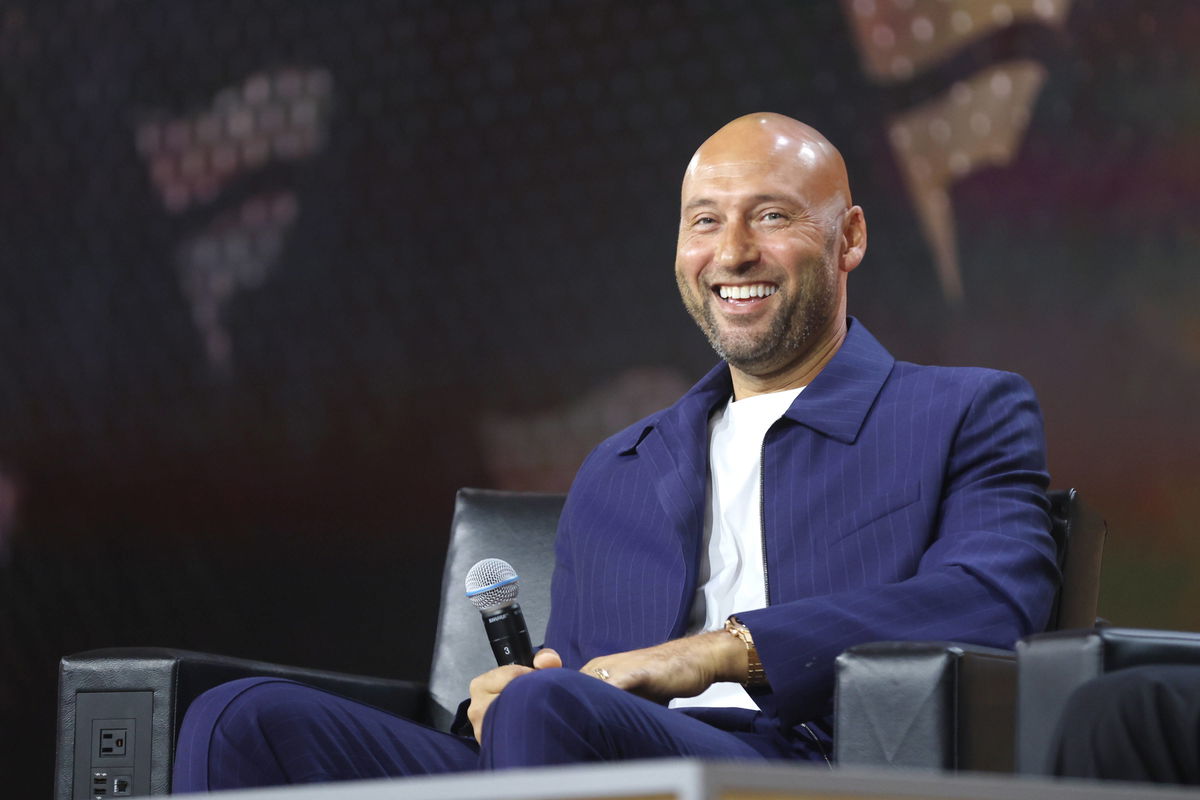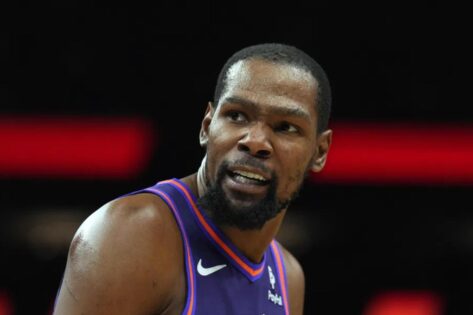Derek Jeter has built quite an empire since retiring from baseball in 2014. One of the high points of his post-retirement life was getting elected to the Baseball Hall of Fame with nearly unanimous support, receiving 396 votes out of a possible 397. He also broke barriers as the first Black chief executive in the history of Major League Baseball with the Miami Marlins. Off the field, he launched a diverse business portfolio, including The Players’ Tribune (a sports media platform), Jeter Publishing (a book imprint), and Greatness Wins (an apparel brand).
‘The Captain’ continues to expand his influence in his post-playing career as well. In 2024, he formed Cap 2 Productions to make family-friendly sports content. He also works as an analyst on FOX Sports during the MLB season.
The father of four recently signed up as a brand ambassador for the sports betting operator BetMGM. And, while promoting this new venture, he revealed one piece of pointed advice that helped him build an iconic Yankees’ career.
Some of his fans might be waiting to see Jeter make a run at becoming a Hollywood star. But famed director Spike Lee, he says, squashed whatever acting dreams he may have had. The exchange took place when Jeter was a 21-year-old newcomer to the Yankees. “I said, ‘Spike, when are you going to let me act in one of your movies?’” Jeter said recently in an interview with Variety. Lee’s response was a sharply worded, direct challenge: “Once you act like a shortstop tonight.” Well, per Jeter, “That hit home.” He instantly understood his priorities.
Aug. 11, 2010 – Arlington, Texas, USA – August 11, 2010. Yankees shortstop DEREK JETER throws out Micheal Young in the third inning on a ground ball. The New York Yankees defeated the Texas Rangers 7 to 6 in a Major League Baseball game at the Ballpark in Arlington, Texas. – ZUMAl92
To understand why Lee’s words had such an impact, let’s rewind to 1996. At that time, Jeter was not yet the untouchable ‘Captain’ of the team. He was a rookie from Kalamazoo, Michigan, thrust into the spotlight. He was only named the starting shortstop after the team’s intended starter, Tony Fernandez, suffered an injury before the season. Manager Joe Torre’s expectations were low. In fact, he only expected the kid would do solid defense and bat around .250.
But the doubts were most prominent higher up in the organization. George Steinbrenner, the owner, was so concerned that he considered trading a young Mariano Rivera for a more seasoned shortstop. Jeter understood that his role was very much uncertain. As he put it, “I came to the ballpark with the attitude of… help the team win and keep my job.”
Of all the problems he had, his defensive work was the worst. He once committed a staggering 56 errors in one minor league season. So, Lee’s advice to “act like a shortstop” in those days must have hit Jeter hard.
And it was Lee, mind you—A big deal in New York in those days.
The voice of New York: Spike Lee’s cultural power
In the early 1990s New York City, Spike Lee was not just a filmmaker. He was a cultural institution. He created films like Do the Right Thing (1989) and Malcolm X (1992) that captured the essence of the city. These films were so epic that they shaped the city’s identity and compelled Lee to be seen as the moral compass of the city.
This influence extended powerfully into New York’s sporting world. Lee’s fandom was an element of his public persona. He was at all the Yankees games and also went to Madison Square Garden very regularly. His telecast feud with Indiana Pacers player Reggie Miller during the NBA playoffs became legendary. It cemented his role as the city’s most passionate, most dedicated, and visible superfan. He didn’t just watch the games; he was a part of the sporting culture of the city.
His distinct influence was most visible during the 1996 World Series. Lee wanted a scarlet red Yankees cap to match an outfit. At the time, such a thing was unheard of. Caps were only made in official navy blue back then, so he called the CEO of New Era, who made it clear that he needed the team’s approval. Well, Lee, being Lee, went directly to the notoriously traditional owner, George Steinbrenner, who granted permission, and the red caps became a fashion statement.
So, for Jeter, that one pointed exchange with such a big personality served as a guiding principle. The great irony of the night was that while Lee shot down Jeter’s acting dreams, he ended up giving him a firm directive of fully inhabiting the role of the New York Yankees shortstop—a role with higher stakes and more lasting legacy than any movie character.
Well, Derek Jeter adopted that persona so well that he became ‘The Captain.’ As he once said, “My heroes, my dreams, and my future lay in Yankee Stadium. And they can’t take that away from me.” The Pinstripes, well and truly, became his destiny.
The post Derek Jeter Reveals Spike Lee’s Acting Advice That Helped Him Become a Yankees Icon appeared first on EssentiallySports.



